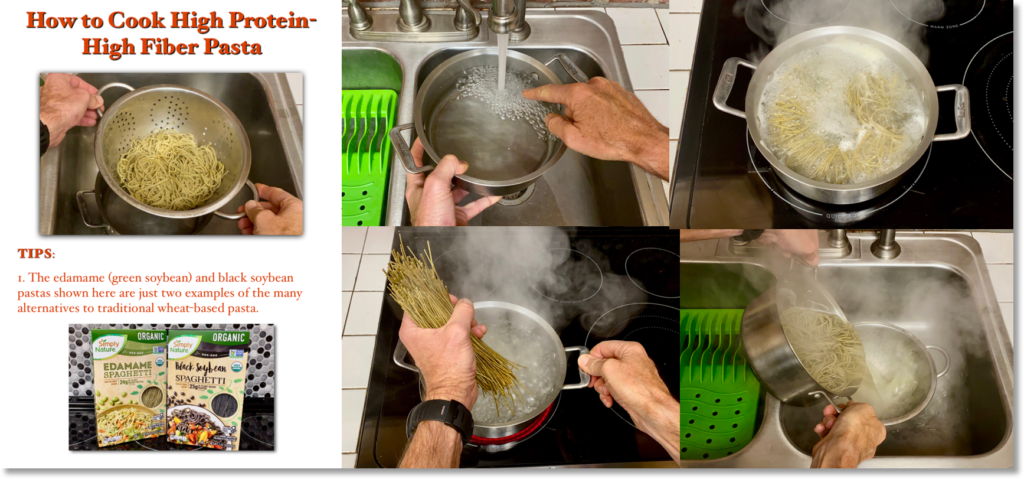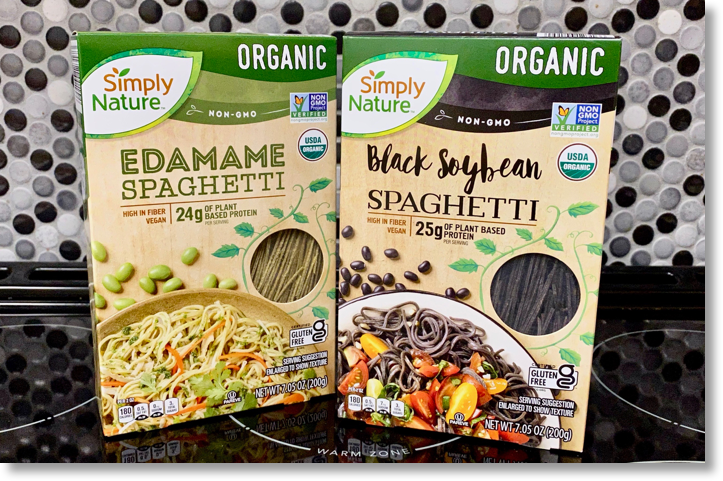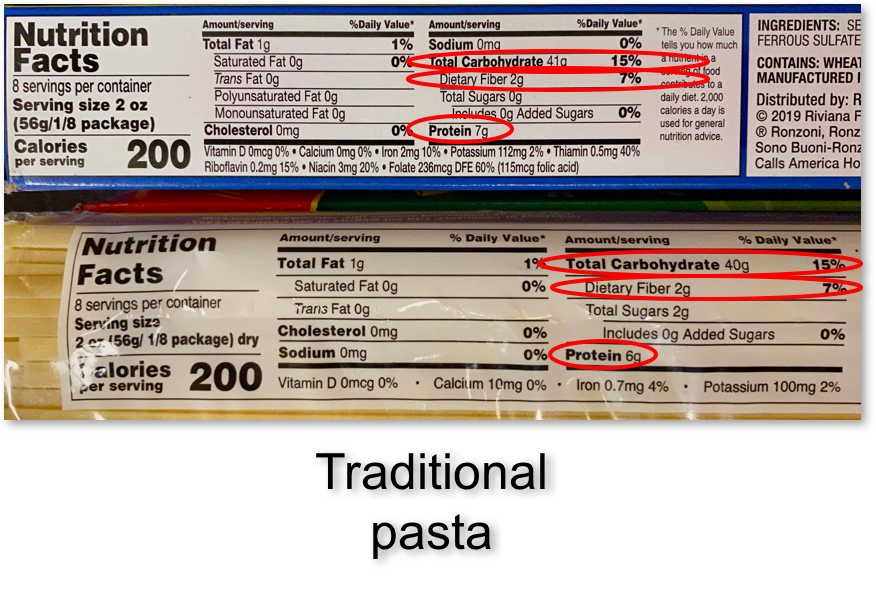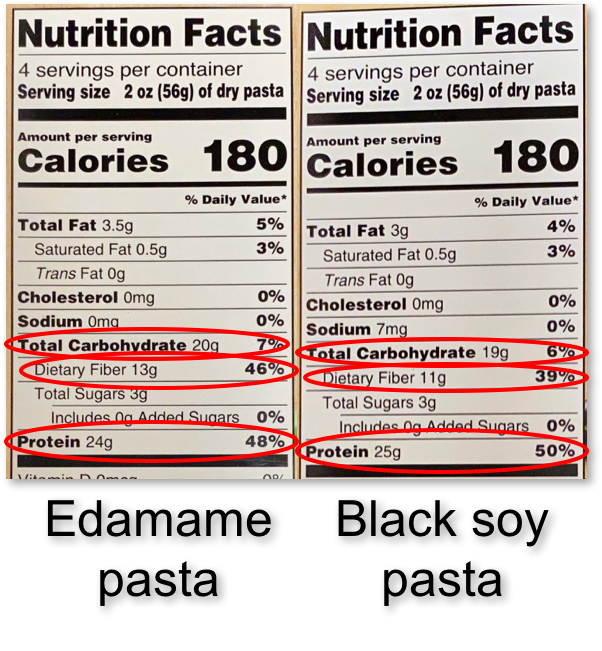Last post showed how to cook great tasting, highly versatile wheat-based pasta to perfection. Future posts will show how to make fully flavorful easy pasta dishes, though you can certainly get a jump on that by clicking this pasta recipe page.
But, what if you’re wheat intolerant and can’t eat wheat-based pasta? Or, what if you want to add more fiber to your diet, which, as mentioned in another recent post, What is Fiber and Why Do We Need It in Our Diet?, is a great idea?
No problem.
There are now many wheat-based pasta alternatives in stores, and here are two that I use regularly, edamame (green soybean) and black soybean pasta.
Here’s how these pastas clearly separate themselves from each other regarding carbohydrate, fiber and protein content. Serving for serving, traditional wheat-based pasta has more than twice the carbohydrates, which is no problem if you live an active life, and…
…only a fraction of the fiber and protein content of high protein-high fiber pasta as shown in the nutrition label comparisons above and below.
Click this link or the picture below for easy to follow How to Cook High Protein-High Fiber Pasta picture book directions.
Next post will be a bit different: What is Mindfulness and What Can It Do For You? I’m a year into daily practice, and it has made a terrific difference. More soon!

 January 24th, 2022
January 24th, 2022  brucetretter
brucetretter 




 Posted in
Posted in  Tags:
Tags: